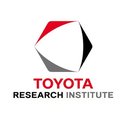Toyota Research Institute
Human-Computer Interaction Research Scientist
Job Description
The Human Interactive Driving team seeks to accelerate the path to building a much more intelligent vehicle that places humans at the center of a more evocative and safer driving experience. Under the Driving-Sensei concept, we research AI-based interactions to unlock a person’s full driving capability while simultaneously making driving safer and more enjoyable.
We are looking for an HCI researcher to work on our Driving-Sensei project, focusing on designing user studies, implementing prototype software and hardware, conducting user studies, analyzing data, and reporting findings through writing papers.
Responsibilities
- Design and conduct user studies to evaluate the effectiveness of HCI systems in improving driving skills and enjoyment
- Develop and implement prototype HCI systems that involve real-time interactions reacting to sensor inputs from a vehicle
- Analyze data collected from user studies (Python/R) and present findings through internally and externally published research papers and presentations
- Debug hardware and software interfaces from both software and hardware perspectives
- Train and manage research assistants to aid in the execution of research
- Capture intellectual property generated through the research process in the form of invention disclosures
- Specify, budget, and manage recruitment activities performed by external agencies
- Work on-site at our Los Altos office and travel monthly to a race track for vehicle testing
Qualifications
- PhD in Computer Science, Robotics, or equivalent
- 3+ years of experience in HCI/HMI research or human-factor-related projects.
- Hands-on approach to prototyping and coding (e.g., Python, C++, Arduino, Raspberry Pi)
- Strong programming skills in Python, C++, and development tools in Linux
- Experience implementing interactions using machine learning algorithms, including large language models and computer vision
- Ability to communicate complex concepts clearly across difference audiences
- Have a high level of initiative and self-motivation, work without direct supervision
Bonus Qualifications
- Working knowledge of software development using ROS2
- Basic understanding of vehicle control and/or wheeled robotics
- Experience in software development in a commercial environment
- Experience in researching shared control systems
- Experience working in the field of artificial intelligence, including autonomous and semi-autonomous driving systems or robotics
- Experience working with various input and output modalities (i.e., touch, speech, haptics, displays, etc.)
The pay range for this position at commencement of employment is expected to be between $151,800 and $210,000/year for California-based roles; however, base pay offered may vary depending on multiple individualized factors, including market location, job-related knowledge, skills, and experience. Note that TRI offers a generous benefits package (including 401(k) eligibility and various paid time off benefits, such as vacation, sick time, and parental leave) and an annual cash bonus structure. Details of participation in these benefit plans will be provided if an employee receives an offer of employment.
Please reference this Candidate Privacy Notice to inform you of the categories of personal information that we collect from individuals who inquire about and/or apply to work for Toyota Research Institute, Inc. or its subsidiaries, including Toyota A.I. Ventures GP, L.P., and the purposes for which we use such personal information.
TRI is fueled by a diverse and inclusive community of people with unique backgrounds, education and life experiences. We are dedicated to fostering an innovative and collaborative environment by living the values that are an essential part of our culture. We believe diversity makes us stronger and are proud to provide Equal Employment Opportunity for all, without regard to an applicant’s race, color, creed, gender, gender identity or expression, sexual orientation, national origin, age, physical or mental disability, medical condition, religion, marital status, genetic information, veteran status, or any other status protected under federal, state or local laws.


